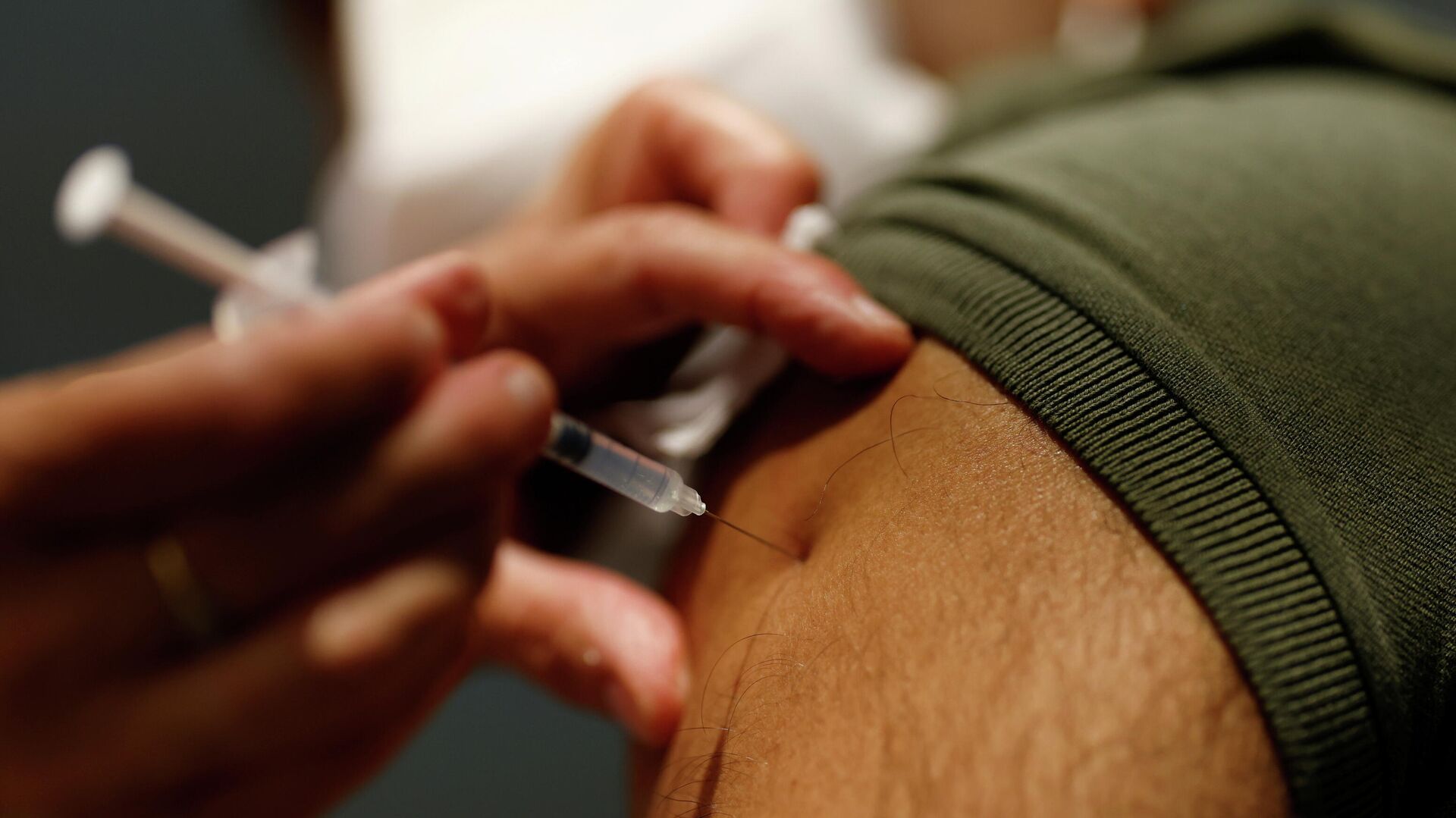FDA Authorizes Second Booster Shot as CDC Says Omicron BA.2 Now Dominant Strain in US
19:13 GMT 29.03.2022 (Updated: 13:29 GMT 06.08.2022)

© STEPHANE MAHE
Subscribe
When the Omicron variant was first discovered in November 2021, it had three distinct lineages, including the BA.1 variant that caused the first Omicron wave and BA.2, which has now become the leading cause of US infections of SARS-CoV-2, the virus that causes COVID-19.
The US Centers for Disease Control and Prevention (CDC) said on Tuesday that the BA.2 subvariant of the Omicron strain has become the dominant cause of COVID-19 in the United States. The variant is more contagious than the original Omicron strain, which was already extremely infectious, but does not seem to be more virulent or more able to penetrate vaccines.
New data published by the US public health agency found that BA.2 was the cause of 54.9% of COVID-19 infections last week, up from about one-third of cases a week prior. However, that distribution is geographically uneven, with more than 70% of cases in the Northeast being caused by BA.2 and roughly one-third of new cases in the south and west being caused by the subvariant.
Despite the shift, the CDC hasn’t recorded any noticeable increase in nationwide daily new cases, which have held near Monday’s seven-day average of 27,775 new cases for nearly two weeks. A February study by the Institute for Health Metrics and Evaluation at the University of Washington in Seattle suggested that 73% of Americans are now immune to the Omicron variant.
Also on Tuesday, the Food and Drug Administration (FDA) approved a second COVID-19 vaccine booster shot for those over the age of 50 or who are immunocompromised. The authorization includes the Pfizer and Moderna shots and is recommended to be given at least four months after the first booster shot was received.
“Current evidence suggests some waning of protection over time against serious outcomes from COVID-19 in older and immunocompromised individuals. Based on an analysis of emerging data, a second booster dose of either the Pfizer-BioNTech or Moderna COVID-19 vaccine could help increase protection levels for these higher-risk individuals,” Peter Marks, director of the FDA’s Center for Biologics Evaluation and Research, said in the news release.
“Additionally, the data show that an initial booster dose is critical in helping to protect all adults from the potentially severe outcomes of COVID-19. So, those who have not received their initial booster dose are strongly encouraged to do so,” he added.
Marks later told reporters that the agency had not made the decision based on variant-specific booster data because the quantity of data necessary to do so would not be available for months.
Roughly 65% of the US population is fully vaccinated and about 44.8% of those have also gotten a booster shot. The Moderna and Pfizer-BioNTech vaccines require two doses for full immunization. A booster shot for the single-shot Johnson & Johnson vaccine has not yet been recommended, as data suggests it blocks breakthrough infections at roughly the same rate as Moderna and Pfizer.
The Omicron variant has been responsible for the worst COVID-19 outbreak in the US thus far, sending daily new cases above 1 million in early January 2022 as well as causing the deaths of roughly 100,000 Americans between December 1, 2021, and January 31, 2022. However, both numbers may actually be far higher, the CDC has warned, with a recent infection-induced antibody seroprevalence survey finding there may have been twice as many COVID-19 cases as were detected by authorities.
Dr. Anthony Fauci, the director of the National Institute of Allergy and Infectious Diseases, predicted last week that the raging outbreak of BA.2 in Western Europe would likely cause an uptick in US infections, but is not likely to be severe enough to force the return of safety restrictions, such as mask-wearing.
“I don't see us going back into any more really very strict kinds of restrictions, but you always have to have the flexibility,” he said.
Ali Mokdad, a professor of health metrics sciences at the University of Washington in Seattle who worked on the immunization report, told the Associated Press in February that he was “optimistic” that “even if we have a surge in summer, cases will go up, but hospitalizations and deaths will not.”
